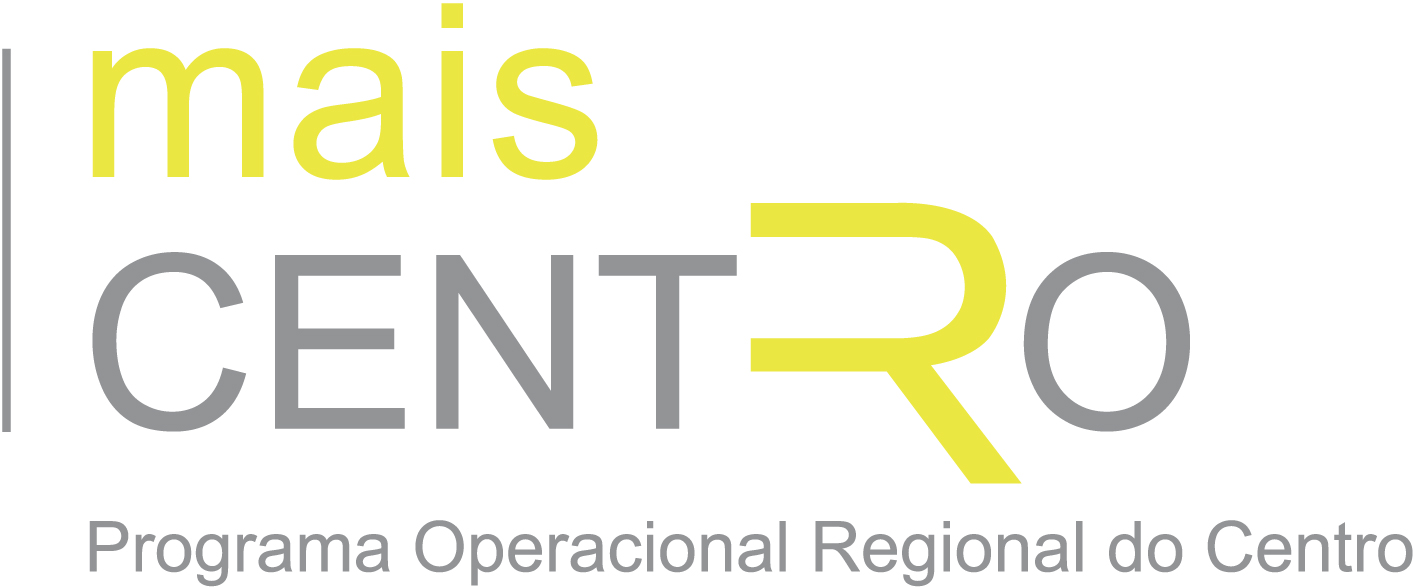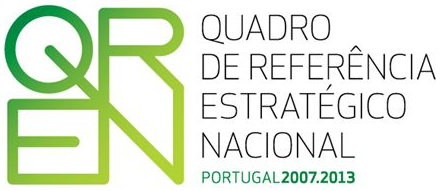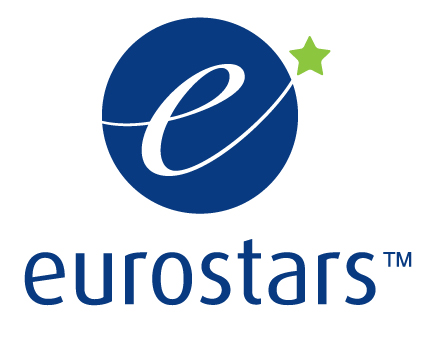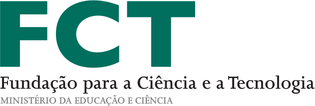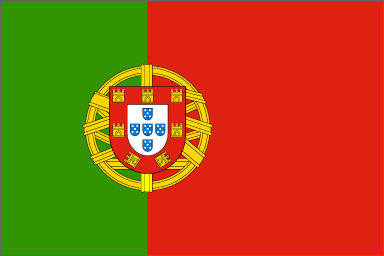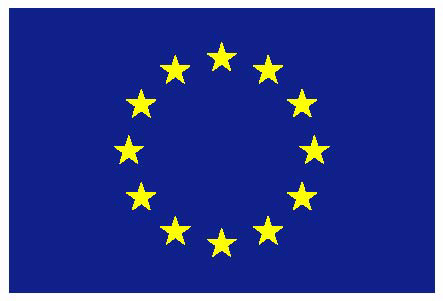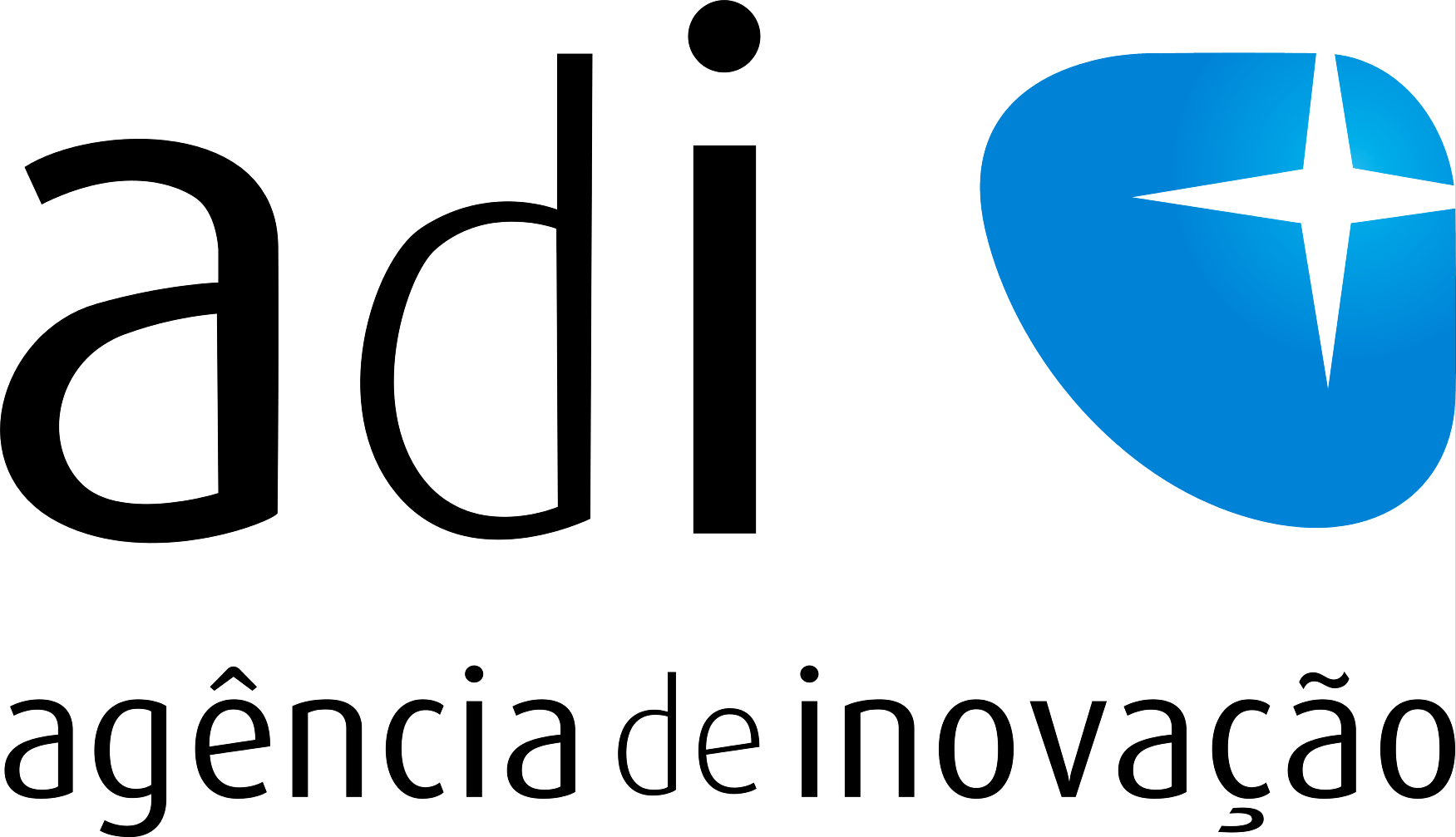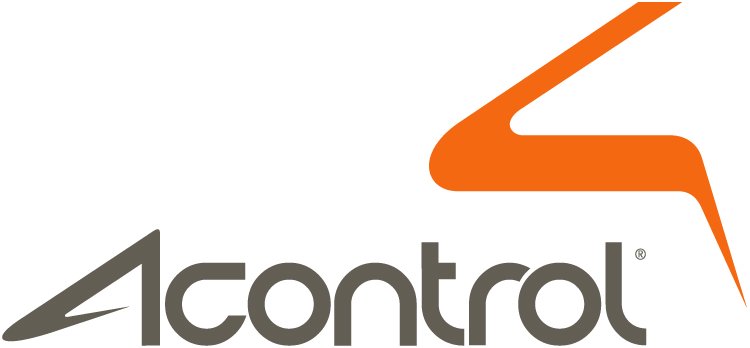Rui Araújo – Projects
Principal Investigator in R&D Projects:
23. SymbIO4WWTP - Multi-Symbiotic InterOperable Model for AI-Optimized Sustainable Wastewater Treatment Plant
Reference number: SymbIO4WWTP/COMPETE2030-FEDER-00797700;
Host institutions: University of Coimbra (UC, leader partner); ‘‘Institute for Systems and Computer Engineering, Technology and Science’’ (INESC TEC); ‘‘Faculty of Economics of the University of Porto’’ (FEP);
Start date: 2026/01/01;
End date: 2028/12/31;
Financing: co-financing by Foundation for Science and Technology (FCT), and “Portugal 2030” (PT2020), in the framework of the “Centro Regional Programme” (CENTRO 2030), “Norte Regional Programme” (NORTE 2030), “Innovation and Digital Transition Thematic Programme” (COMPETE 2030), and by the European Union;
Note: co-principal investigator at UC.
Abstract: The SymbIO4WWTP - Multi-Symbiotic InterOperable Model for AI-optimized sustainable Wastewater Treatment Plant - project aims to optimize WWTPs through a paradigm shift, in which WWTPs not only treat wastewater but also recover important resources present in this environment. Consequently, the sustainability of these plants is increased and framed within the concepts of circular economy and complex industrial symbiosis models based on artificial intelligence (AI) and interoperable concepts related to the theory of Systems Engineering. The approach considers the assessment and optimization of intra-symbiosis (within WWTP), inter-symbiosis (WWTP with external entities) and intersectoral industrial symbiosis, in which what was previously treated as unwanted waste recovered from wastewater (such as nitrogen compounds and biogas) can be reused in other branches of human activity business areas (industrial, agricole, buildings, and others). The project is based on the use of digital representation of the component parts of WWTPs via digital twin, data processing with the aid of data science, artificial intelligence algorithms, innovative performance evaluation metrics for multiple regions of operation, real-time monitoring, and optimization. These features will enable improvements in sustainability, performance, and safety in the operation and monitoring of WWTPs.
The main output of SymbIO4WWTP will be an efficient and sustainable WWTP model, aiming to neutralize CO2 and CH4 greenhouse gas emissions based on multi-symbiosis between the various phases that compose wastewater treatment, and multi-symbiosis between the plant and the corresponding local community, integrating a complete toolkit of methods, simulation models and tools. The resulting model and the optimization technology will enable symbiosis between urban, industrial, agricultural, livestock, and tourist spaces, with WWTP as the pillar and connecting element.
22. WOOSU - Waste Water Treatment Optimal Operation and Symbiotic Upgrade
Reference number: WOOSU/COMPETE2030-FEDER-01463200;
Host institutions: University of Coimbra (UC); ‘‘OnControl Technologies, Lda’’ (OnControl, leader partner); ‘‘AGR - Engenharia e Serviços, Lda’’ (AGR), ‘‘INESC TEC - Institute for Systems and Computer Engineering, Technology and Science’’ (INESCTEC);
Start date: 2025/04/01; End date: 2028/03/31;
Financing: co-financing by “Portugal 2030” (PT2020), in the framework of the “Centro Regional Programme” (CENTRO 2030), “Norte Regional Programme” (NORTE 2030), “Innovation and Digital Transition Thematic Programme” (COMPETE 2030), and by the European Union;
Note: co-principal investigator at UC.
Abstract: The WOOSU project aims to develop a solution that promotes the optimization of the operation, sustainability and circularity of wastewater treatment plants (WWTP). Its results lead to a reduction in operational costs, the sector's ecological footprint with the reduction of greenhouse gas emissions and local water reuse methodologies. The project will also value other surpluses from the operation, sludge, biogas and heat, reintegrating them into the production chain and closing the resource use cycle, through new models of multi-aspect industrial symbiosis.
Process optimization leads to improved effluent quality, taking into account energy consumption and variations in equipment operating times. The project will innovate by incorporating Life Cycle Analysis into the decision-making process for treatment actions, developing complementary tools to support the ISO 59020:2024 standard, aligning with EU best practices and future industry procedures.
The inclusion of sustainability and circularity components in ETEs allows for management that reduces resource waste and maximizes the reuse of treated water, nutrients included in biofertilizers and biogas. This results in a reduction in greenhouse gas emissions, operational costs, and the adoption of concrete circular economy practices. These advances reduce the immediate local environmental impact of treatment operations, promote more efficient use of natural resources, ensure the economic sustainability of WWTPs and contribute to public health and environmental preservation.
The project strives for scientific advances and development of technologies in various areas, namely process monitoring, creation of biochemical models and symbiotic models, sustainability assessment, development of advanced control systems and industrial interface tools with the operator. All technologies will be tested in a real environment, using facilities contracted with one of the co-promoters. A great effort will be made to promote the dissemination of the project and its results among the population, entities managing similar equipment, government decision-making bodies and environmental systems, thus also reinforcing the social sustainability component.
21. SOMIPs - Simulation, Optimization and Monitoring Using AI-Based Digital Twin Technology for Incineration Plants
Reference number: SOMIPs/CENTRO2030-FEDER-01180000;
Host institutions: University of Coimbra (UC); ‘‘OnControl Technologies, Lda’’ (OnControl, leader partner);
Start date: 2025/01/01; End date: 2027/12/31;
Financing: co-financing by “Portugal 2030” (PT2020), in the framework of the “Centro Regional Programme” (CENTRO 2030), “Innovation and Digital Transition Thematic Programme” (COMPETE 2030), and by the European Union;
Note: co-principal investigator at UC.
Abstract: The operation of Biomass Valorization Plants (CVB) is complex due to the great variability of factors related to biomass, such as humidity, types and granulometry, as well as due to the condition of the equipment, quantity of pollutants produced, etc. The uncertainty regarding operational factors implies a high need for human intervention in balancing the various process parameters. This model of constant human supervision of industrial processes, transversal to different production sectors, places the operator with a preponderant role in the performance and efficiency of the processes, with invariably large associated inefficiencies.
Taking advantage of its recognition in the industrial process control solutions market, OnControl, in cooperation with University of Coimbra (UC), thus advances this project with the aim of introducing a transformation of the usual scenario of control and management of biomass burning processes, through the development of an advanced control solution to optimize the operation of biomass boilers, applicable to the CVB market or other industries with biomass boilers. The ultimate objective of this technology is to increase the amount of energy per volume of biomass consumed and reduce the maintenance cost of process equipment.
From a holistic approach, advanced control technology will be developed and adapted, through advanced computing and artificial intelligence methods that allow the digitalization of the production process, in a digital transformation logic, which allows achieving performance gains and new formats assistance/decision support for operators. Performance gains will be achieved by automatically guiding the process using computing algorithms and supporting the decision to execute tasks by operators and redirecting them to activities with greater added value, contributing to the green transition by promoting more efficient processes and sustainable.

20. RELIABLE - Advances in Control Design Methodologies for Safety Critical Systems Applied to Robotics
Reference number: PTDC/EEI-AUT/3522/2020;
Host institutions: Institute of Systems and Robotics - University of Coimbra (ISR-UC); Faculty of Engineering of the University of Porto (FEUP) (leader partner); Center of Systems and Technologies - University of Porto (SYSTEC-UP);
Start date: 2021/02/01; End date: 2024/01/31;
Financing: Foundation for Science and Technology (FCT);
Note: principal investigator at ISR-UC.
Abstract: Advanced robotics, smart sensors, and related control systems methodologies have the potential to be disruptive technologies that may generate significant societal benefits, but it may also produce serious consequences in case of failure, particularly in safety-critical applications. Safety is a critical requirement for a wide range of engineering systems, and engineering design of such systems is complex and involves many technical fields ranging from conceptual algorithmic level design with formal guaranties to hardware and software development, implementation, and operation.
In this project, we target the methodological/conceptual side at the algorithmic/design level in the field of automation and control systems. The aim is to develop system methodological tools and algorithms that explicitly integrates in the formulation safety constraints and that are provably (mathematically) safe certified. To this end, a particular goal is to combine data driven approaches and machine learning techniques (known to be non-reliable, and/or extremely difficult to obtain formal guarantees) with recent optimization control based techniques capable of enforcing invariance in the context of control barrier functions (CBFs) and Control Lyapunov Functions (CLFs) in the presence of challenging restrictions and uncertainties.
Another goal is to move from a single system to (possible large scale) safety critical networked systems involving multiple agents operating autonomously over networks in dynamic environments, where additional challenges arise due to the presence of a communication network. In this case, we will investigate the following crucial aspects: i) how to design control strategies to detect and/or isolate faulty agents and malicious attacks, ii) how to improve robustness under faulty agents and/or tempered input/output signals regarding controllability and observability properties of the overall system, and iii) how to improve resilience of consensus like processes, covering in this way a wide range of applications (distributed optimization, motion coordination tasks like flocking, leader following, among others).
This project is mainly devoted to conceptual aspects, but to illustrate, demonstrate and also assure that it is driven by high-impact safety-critical application systems, RELIABLE will also focus on the following case studies:
- Robotic vehicles in space, aerial and underwater scenarios: The scenarios considered here are mostly related to remote monitoring and exploration applications that require high performance control systems, and are critical in the sense that the consequences of failure can lead to an increase of operational costs, loss of resources (e.g., equipment), opportunities, and failure of the mission. An example to study is the development of path planners for hopping robots traversing rugged terrains of large celestial bodies (such as planets and moons) which has disconnected safe regions cluttered with forbidden zones. Other important topics include the development of localization, navigation and motion control strategies of single and multiple autonomous underwater vehicles and unmanned fixed-wing aerial vehicles with safety guarantees. Here, we plan to go beyond algorithm development, but to test them in digital twins (realistic simulators) and field experiments.
- Mobile robotics in industry 4.0 scenarios: The aim is to contribute to the development of innovative manufacturing solutions with particular emphasis on robotic co-workers scenarios using mobile robotic vehicles. Key research points include the development of high performance active and reliable perception algorithms, reactive planning, navigation and control systems to enable mobile robots to operate autonomously in unstructured environments with effective human-robot collaboration with safety guarantees.
This proposal brings together experts from the areas mentioned above involving a team of PhD students, pos-docs and several faculty members with the University of Porto and University of Coimbra. The merit of this research program is that it targets fundamental/conceptual research, but it is also well motivated by applications. The theoretical solutions envisioned will be strongly rooted in research work done by the team, where obtaining formal guarantees of safety, robustness, stability and performance is a key objective. At practical level, one key objective is to demonstrate and integrate some of the algorithms developed in software tools for command and control of single and multiple robotic systems, simulate and test within hardware in the loop, and validate through real field tests.
19. SmartWater - Smart Water Meter and Intelligent Water Analytics Platform for Water Pipeline Leakages Localization and End-Use Water Demand Outline
Reference number: SmartWater/2019/47730;
Host institutions: Institute of Systems and Robotics - University of Coimbra (ISR-UC); ‘‘CWJ - Projecto, SA’’ (CWJ-P, leader partner); ‘‘CWJ - Componentes, SA’’ (CWJ-C); ‘‘UtilityARTS, SA’’ (UARTS);
Start date: 2020/09/01; End date: 2023/06/30;
Financing: co-financing by “Portugal 2020” (PT2020), in the framework of the “Centro Region Operational Programme” (CENTRO 2020), and by the European Union through the European Regional Development Fund (ERDF);
Note: principal investigator at ISR-UC.
Abstract: CWJ group of companies (CWJ Group) has already developed an Automated Metering Infrastructure (AMI) for Water Distribution Networks (WDN) supported in Wireless Water Meter Transceivers (WWMT), capable of being installed in the existing standard water meters, that can establish a meshed Wireless Sensor Network (WSN) among them. This WSN is created through the Low Power Wide Area Network (LPWAN) - All for Everyone - Energy Aware (AfE-EA) communications protocol, developed by CWJ-P. The AfE-EA protocol uses a mesh topology that can provide the total coverage of all the water infrastructure’s devices, including devices placed in building’s basements, normally not covered by other IoT communications protocols. Since this business concept in now completely established on the market by CWJ Group, with rollouts in several WDN infrastructures in Portugal, following the particular innovation that the market is demanding, this project aims to obtain an Integrated Management of Efficiency System (IMES) that includes a Smart Water Meter (SWM) with innovative functionalities and an Intelligent Water Analytics Platform (IWAP).
A Smart Water Meter (SWM) will be developed with integrated communications and sensing capabilities, and an Intelligent Water Analytics Platform (IWAP), with artificial intelligence algorithms and other tools to support the business concept of Water as a Service (WaaS), as an Integrated Management of Efficiency System (IMES). The new Smart Water Meter (SWM) to be developed will integrate in one package: a water meter, communications (based on WWMT), sensors and electronics for management and measuring/data acquisition, such as acoustic data, pressure, temperature, and water conductivity, and the energy source (battery and/or energy harvesting technology).
The SWM will be prepared to have special functionalities to be operated by the Intelligent Water Analytics Platform (IWAP), which will be capable of analyzing the data supplied by the SWMs, using artificial intelligence algorithms, in order to properly manage the WDN, elaborate Water Analytic Balances (WAB), perform the detection and localization of water leakages, manage the WDN pressure and perform the water consumption disaggregation by end-use.

18. EVAI Charge - Artificial Intelligence Electric Vehicle Charge for Low Carbon Buildings
Reference number: EVAI/2019/47196;
Host institutions: Institute of Systems and Robotics - University of Coimbra (ISR-UC); ‘‘VPS - Virtual Power Solutions, Lda’’ (leader partner);
Start date: 2021/01/01; End date: 2023/06/30;
Financing: co-financing by “Portugal 2020” (PT2020), in the framework of the “Centro Region Operational Programme” (CENTRO 2020), and by the European Union through the European Regional Development Fund (ERDF);
Note: principal investigator for the computational intelligence part at ISR-UC.
Abstract: The European Union has been increasingly interested and concerned with energy policy in general. In the Clean Energy Package (2015 and 2019), citizens are at the centre of concerns and the need to be able to take advantage of new technologies to reduce energy bills and participate actively in the market is highlighted. One of the priorities is to “facilitate the participation of consumers (…) through smart grids …”. The Green Deal, released in December 2019, sets out an approach for a deep transformation of the EU economy to a new growth strategy based on clean energy supply across all sectors, requiring the deployment of innovative technologies and infrastructure, such as smart grids.
The work proposed in this project aims to develop an Electric Vehicle (EV) charging network management platform that incorporates a large variety of features associated with the use and charging of EVs and building management in a microgrid context, for application in commercial/services buildings for automatically and smartly schedule EVs charging. The main innovation and objective of the platform to be developed in the scope of this project is to develop an adequate and intelligent automated power charging management of an EV fleet, increasing charging capacity without the need for electrical infrastructure upgrades. This power management is made, taking into consideration multiple inputs and parameters/restrictions acquired from different sources, in real-time, ensuring that the electrical building power demand is not exceeded. The platform intends to keep up with industry trends and prepare buildings for the future of electric transportation.
The preliminary list of data inputs and parameters/restrictions include: EV state of charge, energy storage, renewable energy production, building power demand, user/EV mobility behaviour and agenda, demand response strategies, V2B/B2V, routing, energy tariffs and scheduling. Based on all the multiple inputs, parameters, restrictions and other definitions, the platform will take decisions, based on computer intelligence algorithms to be developed, in order to manage the power and charging time of each charging point of an EV fleet, prioritizing them and performing an efficient use of the energy resources available on the building. The developed platform will be tested in a pilot demonstrator using the smart grid infrastructure that is already installed in the co-promoter facilities.
The “EVAI Charge” is a complete solution for a charging network management: it includes hardware (EVSE, energy meters, demand response equipment) and software (user friendly interface and computer intelligent algorithms for automated energy resource management). It will be compatible with most of the market existing controllable EVSEs and demand response equipment's.

17. SYNAPPS - Platform for Estimation, Control, and Optimization of Waste Water Treatment Plants
Reference number: CENTRO-01-0247-FEDER-046978;
Host institutions: Institute of Systems and Robotics - University of Coimbra (ISR-UC); ‘‘Itecons - Instituto de Investigação e Desenvolvimento Tecnológico para a Construção, Energia, Ambiente e Sustentabilidade’’; ‘‘CTGA - Centro tecnológico de Gestão Ambiental, Lda’’ (leader partner);
Start date: 2021/01/01; End date: 2023/06/30;
Financing: co-financing by “Portugal 2020” (PT2020), in the framework of the “Centro Region Operational Programme” (CENTRO 2020), and by the European Union through the European Regional Development Fund (ERDF);
Note: principal investigator for the computational intelligence part at ISR-UC.
Abstract: Wastewater generated by the vast world population is an important source of pollution. Such wastewater can also accelerate the loss of biodiversity and prevent the achievement of objectives set by the international community regarding the good state of the waters. As far as the European Union is concerned, legislative acts have clear and binding objectives for member states. However, it is completely flexible regarding the means to achieve these objectives, allowing for alternative solutions and encouraging innovation in wastewater treatment strategies.
In line with the European Union's sustainable development strategy, which provides for the adoption of measures of environmental control, energy efficiency and rational management of increasingly demanding resources, this project is presented with a high potential for economic valorization, centered on design, development and validation in real conditions of an innovative platform for estimation, control and optimization of wastewater treatment plants (WWTP), called SYNAPPS.
Based on the implementation of multiparametric measurement chains and the application of computational intelligence techniques (e.g. Big Data Analytics, Data Mining and Machine Learning), the platform developed within the scope of the project should be able to provide an integrated management of the various processes of data processing in waste water treatment plants (WWTP), guaranteeing a high environmental, energetic and operational performance. It should also simplify and relieve the activity of operating this type of technical infrastructure. The project will not be limited to the evaluation of the performance of the functional components and modules, and the new platform, as a whole, is expected to be installed in a WWTP in normal operation, in order to validate the concept in all aspects relevant to its commercialization. and subsequent use. It is also planned to carry out a life cycle assessment study that will make it possible to highlight the main advantages of using the platform.
The project will be carried out in a consortium by CTGA, a SME with more than 20 years of experience in the operation and management of WWTP, by Itecons, the NE entity of the SI&I with relevant experience in the development of automation and dynamic control systems and in the assessment of the energy and environmental performance of processes, as well as by ISR-UC, the NE entity of SI&I with relevant knowledge in the assessment of the energy performance of complex systems and in the development of control algorithms based on computational intelligence.

16. InGestAlgae - Intelligent Platform for Microalgae Production Management
Reference number: CENTRO-01-0247-FEDER-046983;
Host institutions: University of Coimbra (UC); OnControl Technologies, Lda (leader partner);
Partner institution: BuggyPower (Portugal) - Management and Production of Biomass, Lda;
Start date: 2021/01/18; End date: 2023/06/30;
Financing: co-financing by “Portugal 2020” (PT2020), in the framework of the “Centro Region Operational Programme” (CENTRO 2020), and by the European Union through the European Regional Development Fund (ERDF);
Note: co-principal investigator at UC.
Abstract: This project aims to develop an integrated management system, supported by computational intelligence systems, to support the microalgae production process. This system, called IngestAlgae, will consist of several modules, present in the different layers of industrial automation: shop floor, control, supervision and management.
Briefly, this project will integrate the process data, for later use and valorization of the information, in view of the energy management, control and optimization of the process, fault detection, application of preventive maintenance, and detection of bottlenecks in the process. The macro objective of the IngestAlgae system is to allow the microalgae production process to operate under optimal performance conditions, in order to improve productivity and reduce production costs.

15. iProMo - Intelligent System for Control of Milling Processes
Reference number: CENTRO-01-0247-FEDER-069730;
Host institutions: University of Coimbra (UC); OnControl Technologies, Lda (leader partner);
Partner institution: Cimpor - Cements of Portugal;
Start date: 2021/02/01; End date: 2023/06/30;
Financing: co-financing by “Portugal 2020” (PT2020), in the framework of the “Centro Region Operational Programme” (CENTRO 2020), and by the European Union through the European Regional Development Fund (ERDF);
Note: co-principal investigator at UC.
Abstract: This project aims to investigate and develop an intelligent system for horizontal mills, in order to increase the efficiency of the grinding process and minimize downtime due to breakdowns. The optimization will be achieved by estimating, in real time, operational parameters critical to the process, which cannot be directly measured, due to the lack of sensors for this purpose. These parameters are, the level of filling of the mill, the impact zone of the grinding bodies, the setting of the cement and the fineness of the particles; these last two are parameters related to the quality of the milling. In addition to the estimation of critical parameters, it is also the objective of this project to develop tools to assist in the maintenance and detection of anomalies in sensors. The systems developed here, will be created based on the operational data of the process together with other parameters external to the mill, from vibration sensors, to be installed in the base and in the grinding cylinder, voltage and current signals of motors, others process signals (air flows, scale weights, etc.), in conjunction with mathematical modeling, signal processing and computational intelligence techniques. The acquisition of external data will take place through modular and expandable hardware modules (to be developed during the course of this project), composed of a data acquisition, processing and management system in an “edge analytics” concept. This solution complements the portfolio of advanced control solutions for horizontal rotary mills, made available by Oncontrol.

14. SIICEI - Intelligent System for Identification of Electrical Loads in Industrial Equipment
Reference number: SIICEI/2017/33338;
Host institutions: University of Coimbra (UC); OnControl Technologies, Lda (leader partner); Advanced Home, Lda;
Start date: 2018/11/01; End date: 2021/07/31;
Financing: co-financing by “Portugal 2020” (PT2020), in the framework of the “Centro Region Operational Programme” (CENTRO 2020), and by the European Union through the European Regional Development Fund (ERDF);
Note: principal investigator at UC.
Abstract: The SIICEI project has the main goal of research and development of an electrical loads separation and identification system for industrial applications, and subsequent processing, for energy consumption and operation monitoring. The system to be developed shall allow the energy consumption profile identification of each electrically-powered equipment (charge), in real-time, using computational intelligence and signal processing methodologies, and using only the electrical energy signals only at the industrial installations energy input. So, with a reduced investment and quick installation it is possible to identify the energy consumption, measure equipment operation periods, and also, drive new applications of the gathered data.
The paradigm shift that the consortium shall realize allows monitoring of several equipment performance metrics (consumption, operation period, durability, to name a few) as well as the quick and automatic equipment failure detection. The real implementation of the results of this project shall result in the increase of the energy and productivity efficiency of industrial units. In an early phase the technology shall be validated in small to medium sized industrial units, which, typically possess the bare minimum of technology in their production lines.

13. CONNECTA-X - Interoperable System and Modules for Appliance Integration in Intelligent Home Ecosystems
Reference number: CONNECTA-X/2017/33354;
Host institutions: University of Coimbra (UC); Critical Software, SA (leader partner);
Start date: 2018/10/01; End date: 2021/09/29;
Financing: co-financing by “Portugal 2020” (PT2020), in the framework of the “Competitiveness and Internationalization Operational Programme” (COMPETE 2020), and by the European Union through the European Regional Development Fund (ERDF);
Note: principal investigator at UC.
Abstract: The CONNECTA-X project performed R&D on interoperable system and modules for integration of appliances in intelligent homes; including R&D on themonitoring integration of “Internet of Things” (IoT) and Smart Meters and aims to develop a structure for the embedded market, a platform for communication, gathering, and treatment of data in the computational intelligence and monitoring device monitoring domains, that should support the development of new added-value products and services on the IoT and Smart Meters domain.
Recently, we have been watching processing technology and connectivity integration with all those everyday things, making them a part of our lives. This reality, created the IoT concept, in which the number of smart objects have been dramatically increasing over time. However, there still exists some barriers that have a negative impact on IoT market spread and maturity. Essentially, they are related to interoperability, and/or high costs and longer design and production times.
On another level, we have “smart” concepts like smart grids, smart cities, smart homes, smart meters, etc., which dissemination has been increasing fast. More efficiency, interoperability between systems, connectivity have been achive thanks to the interconnection between those objects.
This project was born from the combination of those two realities, IoT and Smart Meters, which are the project basis. CONNECTA-X aims to develop a communication, data collection and processing platform, for computational intelligence and device monitoring, which will support the development of new value-added products and services IoT related. From that platform, a solution for the embedded market, specifically smart home appliances, will be searched and developed. It will allow smart meters and Household appliances communication. This solution will be attractive for consumer appliance manufacturers, thanks to is cost-effective and time-to-market, and it will allow appliances faster conversion into smart appliances, and smart metering network compatible.

12. IMPROVE - Nonlinear Control, Estimation and Fault-Detection Tools with Provably Guarantees for Mobile Robotic Systems
Reference number: POCI-01-0145-FEDER-031823;
Host institutions: Institute of Systems and Robotics - University of Coimbra (ISR-UC); Faculty of Engineering of the University of Porto (FEUP) (leader partner); Institute of Systems and Robotics - University of Porto (ISR-UP);
Start date: 2018/06/01; End date: 2022/01/31;
Financing: co-financing by the Foundation for Science and Technology (FCT), the “Competitiveness and Internationalization Operational Programme” (COMPETE 2020), Portugal 2020 (PT2020), and the European Union through the European Regional Development Fund (ERDF);
Note: principal investigator at ISR-UC.
Abstract: The aim of this project is to develop system theoretical tools and algorithms in framework of mobile robotic systems that explicitly integrate in the conceptual formulation not only the desired main task but also other key objectives (e.g., economic, performance, robustness, safety, system observability properties, communication behavior and interaction with other systems, etc.) in the presence of challenging restrictions and unstructured environments. The emphasis will be placed on the design of nonlinear and optimization based control and estimation procedures that are provably accurate by construction for single and multiple robotic systems including fault-detection and isolation strategies in order to obtain high performance robotic systems capable of meeting the end-user requirements.
To assure that the research is driven by high-impact application areas, the project will focus on the following case studies:
- Shop floor logistics and manipulation: The aim is to study and contribute to the development of innovative manufacturing solutions with particular emphasis on logistics and robotic co-workers scenarios using mobile manipulators. Key research points include the development of robust and high performance torque control strategies for robotic manipulators, active and reliable perception algorithms, reactive planning, navigation and control systems to enable mobile robots to operate autonomously in unstructured environments with effective human-robot collaboration with safety guarantees.
- Cooperation of air and marine autonomous robotic vehicles for ocean monitoring and sampling: The motivating scenario is the detection and tracking of some event/feature of particular interest in the ocean (e.g., oil spill pollution) where a network of heterogeneous robotic vehicles (air, surface, and underwater) that can interact autonomously with the environment and among themselves, works in cooperation to obtain measurements with adequate temporal and spatial resolutions. The same network can also adapt in real-time its behavior/geometrical configuration in response to environmental variables measured in-situ in order to improve performance and optimize the detection and measurement strategy.
This proposal brings together experts from the areas mentioned above. The merit of this research program is that it targets fundamental research well motivated by applications. The theoretical solutions envisioned will be strongly rooted in research work done by the team. Obtaining formal proofs of robustness, stability, and performance of the control and estimation algorithms is a key objective.
At practical level, one key objective is to demonstrate and integrate some of algorithms developed in the software tools for command and control of the robotic systems, simulate and test within hardware in the loop, and validate through field tests.
11. TOOLING4G - Advanced Tools for Smart Manufacturing
Reference number: TOOLING4G/2016/24516;
Host institutions: University of Coimbra (UC); CENTIMFE - Technological Center for Moulds, Special Tools and Plastics (overall management); Aníbal H. Abrantes - Industries of Moulds and Plastics, S.A. (leader); the project is a partnership among 30 entities, including 20 companies, and 10 non-corporate R&D institutions, higher education entities, and technological interface centers;
Start date: 2018/03/01; End date: 2022/10/31;
Financing: co-financing by the “Competitiveness and Internationalization Operational Programme” (COMPETE 2020), Lisbon Regional Operational Program 2014/2020 (LISBOA2020), Portugal 2020 (PT2020), and by the European Union through the European Regional Development Fund (ERDF);
Note: principal investigator for the PPS2 part at the UC.
Abstract: The TOOLING4G project aims to make an important contribution to the moulds and plastics industry, enabling the partner companies to create the conditions to become competitive and to overcome global market challenges, by creating internally conditions for production flexibility.
The project is structured in 7 large PPSs (Product, Process or Service), including hybrid manufacturing processes; intelligent tools/systems; efficient tools for multi-material products’ manufacturing; multi-process tools; industry digitalization; sustainable “zero defect” production chain; management and dissemination.
The consortium consists of 21 mould-making and plastics companies and 10 entities of the research and innovation system, including higher education institutions and technology interface centres, that possess a set of complementary skills and human capital resources.
Several innovations are expected to be developed in the project, mainly centred in materials, products and processes, and also in the endogenization of technologies and organizational paradigms in the context of the Industry 4.0 concept.
The participation of the University of Coimbra (UC) in the “PPS2 - Intelligent Tools/Systems” of TOOLING4G includes the development of a system of algorithms for communication in the mould-machine complex for real-time monitoring, prediction and control of parameters, variables, and defects in the injection process and in the mould-machine complex, in order to optimize the process and the moulded parts. In this participation, the UC is represented by the Intelligent Control research group of the “Institute of Systems and Robotics - University of Coimbra” (ISR-UC). In this context, computational intelligence and intelligent control methodologies are investigated and developed for monitoring, prediction, and control of parameters, variables, and defects.
10. SMITEn - Smart Meter Integrated Test Environment
Reference number: SMITEn/2016/023613;
Host institutions: Institute of Systems and Robotics - University of Coimbra (ISR-UC); Critical Software, SA;
Start date: 2017/10/01; End date: 2019/09/30;
Financing: co-financing by the “Competitiveness and Internationalization Operational Programme” (COMPETE 2020), Portugal 2020 (PT2020), and by the European Union through the European Regional Development Fund (ERDF);
Note: principal investigator at ISR-UC.
Abstract: Smart-Grids are an integrated vision for the future of energy supply networks in response to the current challenges of environmental sustainability, reliability and quality of the European energy supply. These infrastructures integrate various heterogeneous elements that should be well interconnected and whose interoperability will become increasingly complex and critical for the security and world economy.
Smart meters are the key instrument to implement these infrastructures and should be installed in nearly 80% of the European households by 2020. However, one of the great difficulties in the development of these complex systems is the ability to test them in an environment close to that where they operate, due to the cost and time needed to make tests in a real environment, as well as to the necessary interconnection between all components of such a system.
The SMITEn project proposes R&D activities to develop an innovative solution for testing and validating smart meters, enabling a wide range of global organizations to implement and execute all the needed tests to fulfill technical requirements and validate the interoperability required by each country's government. The validation infrastructure should integrate a toolkit that should support all test scenarios. It provides real and emulated connectivity to suit different situations and enables easy replication of issues and verifiable fixes.
Proposing a reliable and flexible solution to enable and help spread smart meters all over the world, SMITEn project may provide an effective response to the transition to a low carbon economy and an important contribution to an affordable, secure and sustainable energy.
An important aspect in SMITEn are the R&D activities regarding the integration of simulators, and the design of closed loop smart metering simulators.

9. KhronoSim - System for Simulation and Test of Complex Systems
Reference number: KhronoSim/2016/17611;
Host institutions: University of Coimbra (UC); Critical Software, SA (leader partner); Institute of Engineering of Porto;
Start date: 2016/10/01; End date: 2018/09/30;
Financing: co-financing by “Portugal 2020” (PT2020), in the framework of the “Competitiveness and Internationalization Operational Programme” (COMPETE 2020), and by the European Union through the European Regional Development Fund (ERDF);
Note: principal investigator at UC.
Abstract: Concepts such as “Fourth Industrial Revolution (Industry 4.0)” and “Internet of the Things (IoT)” boasted into the technology speech like a blizzard, touching those who use and interest themselves of technology almost as much as those developing it. Such concepts are not surprisingly more used than understood; more are those using the concepts than those actually understanding their implications. Surprisingly enough, the increase of use of technology by the population at large, makes that security is not the least well-known aspect, though still not fully grasped however.
Less well-known are the implications of complex systems working tightly coupled, with little or no human intervention, or possibility of human intervention, whatsoever. In such a scenario, testing components individually, one-by-one, is not sufficient to assert the correct functioning of the overall system.
KhronoSim aims at developing a platform for testing cyber-physical systems in closed-loop. A platform that is modular, extensible and usable in multiple application domains. A platform featuring hard-real-time control, enabling the integration of simulation models to build a closed loop test environment and allowing the use of physical and virtual systems alike.
The application case of the project is the simulation, control, and test of a sun-synchronous satellite.

8. SCIAD - Self-Learning Industrial Control Systems Through Process Data
Reference number: SCIAD/2011/21531;
Host institutions: University of Coimbra (UC), and Acontrol;
Start date: 2012/01/01; End date: 2014/12/31;
Financing: co-financing by QREN, in the framework of the “Mais Centro - Regional Operational Program of the Centro”, and by the European Union through the European Regional Development Fund (ERDF);
Note: principal investigator at UC.
Abstract: The objectives and scope of the project are in R&D on data-based control methodologies based auto-tuning and auto-adaptive approaches for PID and other controlers for linear and non-linear systems; R&D control methodologies based on process data for auto-design and auto-adaptation of controllers for linear and nonlinear systems; R&D on nonlinear control systems applying methods based on neural networks using processa data, and other methods; R&D on linear and non-linear multi-variable control methodologies; R&D of model predictive control (MPC) methodologies, considering knowledge driven and data driven approaches; R&D of MPC methods that are able to auto-tune, auto-adjust, auto-adapt, and learn the system model from observation of system variables; Research on the identification of process models by cognitive algorithms (neural networks, support vector regression (SVR), fuzzy systems, etc); Research of mathematical prediction methods and/for application on the optimisation of the MPC methods; R&D of mathematical optimisation, stability, and robustness of the researched control methodologies; R&D of learning methodologies for the determination of linguistic values of linguistic fuzzy variables, as well as for the determination of the control rules: R&D on evolutionary algorithms and/or genetic algorithms and/or hybrid and/or optimization methodologies and/or unsupervised learning methodologies for learning the linguistic variables and the rules for the knowledge base of a fuzzy controller; R&D on application to simulated processes, real prototype processes, and real industrial processes.
7. FAir-Control - Factory Air Pollution Control
Reference number: E!6498;
Host institutions: University of Coimbra (UC), and Acontrol;
Start date: 2011/11/01; End date: 2013/10/31;
Financing: Eurostars Programme of the EUREKA network, financed by “Fundação para a Ciência e a Tecnologia” (FCT), of the Ministry of Education and Science, “Agência de Inovação” (AdI), and the Seventh Framework Programme for Research and Technological Development (FP7) of the European Union;
Note: principal investigator at UC.
Abstract: The aim of this project is to develop advanced real-time control methodologies for cost optimization of air pollutants mitigation systems. The goal is the automatic control and optimization of the feed rates of mitigation chemicals introduced into the production process (Selective Non-Catalytic Reduction), in order to control the pollutants output on the stack within the legal limits, i.e. always taking in consideration the non-violation of regulations.
The main objective is to control the pollutants output on the stack within the legal limits by optimally and automatically selecting the chemicals injection rate into the cement production process, always taking in consideration the non-violation of regulations.
Controlling the pollutants ration is a quite difficult problem due to the large instability of the chemicals reactions. Hence the operators work to comply to a worst case scenario, protecting themselves by injecting a quantity of chemicals much higher than needed, wasting resources and increasing the production costs.
This project proposes the development of a software-based product, with embedded computational intelligence, capable of selecting the optimal chemical injection quantities for minimizing the operational cost. The base computational intelligence technology for this project is the Fuzzy Logic control.
The chemical reactions generated by the chemicals introduced in the cement kiln are very complex and its effectiveness highly depends on several factors such as: temperature, pollutants concentration and dispersion of the chemicals into the gas. One other aim of this project is to develop a systems that is capable to change its strategy of injecting chemicals according to the variations in the process.
To successfully achieve these objectives, it will be formed a consortium composed by 3 organizations: (1) Industrial control expert company (Acontrol), (2) Burner and kiln process expert company (Pricast), (3) University research group with expertise in advanced control and cognitive systems (UC).
The impact of the project results on the process optimization, with direct reduction of factory costs, will add a high market potential to the consortium participants.
6. SInCACI - Intelligent Systems for Industrial Control, Acquisition and Communication
Reference number: SInCACI/3120/2009;
Host institutions: University of Coimbra (UC), and Acontrol;
Start date: 2009/04/01; End date: 2012/03/31;
Financing: “Mais Centro Operacional Program”, financed by “European Regional Development Fund” (ERDF), and “Agência de Inovação” (AdI);
Note: principal investigator at UC.
Abstract: The objectives and scope of the project are performing R&D on intelligent control and decision methods; Development of a general-purpose Fuzzy Control System (FCS); On-line process control and monitoring; Controller specification and implementation; Visualization of the process state; Devices/process failure reports; Direct application to industry problems; Research computational intelligence techniques for the development of soft sensors for industrial application; R&D on industrial communication and processing modules: industrial distributed real-time communication fieldbus protocols: ControlNet, Ethernet/IP, DeviceNet; ProfiNet. Relevant properties to industrial fieldbuses: Real-time operation, Reliability, Deterministic, Error-proof, Easy to extend and maintain. Direct application to industry problems; Selling on market.
5. FUZCTR - Development of Fuzzy Controllers for Modules of Manufacturing Systems
Reference number: ACONTROL/ISR/001/2007;
Host institution: “Institute of Systems and Robotics - University of Coimbra” (ISR-UC);
Start date: 2007/08/27; End date: 2009/08/31;
Financing: “AControl - Automação e Controle Industrial, Lda” company.
Abstract: In this project the goal is to study and implement a fuzzy control system for industrial process control applications. The first applications will be in a cement kiln plant, including, as a first step, the control of the raw mill process.
4. STRNET - Development of Hardware/Software for Industrial Distributed Real-Time Systems Using the ControlNet Protocol
Reference number: ACONTROL/ISR/002/2007;
Host institution: “Institute of Systems and Robotics - University of Coimbra” (ISR-UC);
Start date: 2007/08/27; End date: 2009/08/31;
Financing: “AControl - Automação e Controle Industrial, Lda” company.
Abstract: In this project the goal is to study and develop hardware and software of real-time system containint digital processing (microcontrollers) having the capacity of performing network communication with other modules using the ControlNet protocol, as well as the capacity of performing relevant processings in industrial automation and control environments.
3. Project of Creation of the Research & Development Division of Acontrol
Reference number: CENTRO-07-0202-FEDER-002502;
Host institution: University of Coimbra (UC); Principal contractor: Acontrol;
Start date: 2008/09/01; End date: 2011/08/31;
Financing: “IAPMEI - Instituto de Apoio às Pequenas e Médias Empresas e à Inovação” and “AControl - Automação e Controle, Lda”. Financed within ‘‘Projectos de Criação e Reforço de Competências Internas de I&DT’’ of ‘‘Sistema de Incentivos à Investigação e Desenvolvimento Tecnológico nas Empresas’’ (SI I&DT) of ‘‘Quadro de Referência Estratégico Nacional Portugal 2007-2013’’ (QREN);
Note: principal investigator at UC.
Abstract: The University of Coimbra participates as a specialized consultant in the area of intelligent systems and algorithms.
2. Computational Intelligence for System Monitoring, Diagnosis, and Control in Industrial Applications
Reference number: SFRH/BDE/33295/2008, PhD fellowship in company entitled “System for Monitoring and Diagnosis Using Soft Sensors in Industrial Applications”;
Host institutions: University of Coimbra (UC) and ISA;
Start date: 2008/10/01; End date: 2012/09/30;
Financing: Fundação para a Ciência e a Tecnologia (FCT), and “ISA - Instrumentação e Sistemas de Automação, Lda”;
Note: principal investigator at UC.
Abstract: The goal of this project is the realization of research and development (R&D) in the areas if computational intelligence, virtual sensors, estimation, monitoring, prediction, diagnosis, and control applied to waste water treatment plants (WWTP).
1. LRN2002 - Learning Methods for Robot Operation
Reference number: POSI/SRI/42043/2001;
Host institution: “Institute of Systems and Robotics - University of Coimbra” (ISR-UC);
Start date: 2002/05/01; End date: 2005/12/31;
Financing: Fundação para a Ciência e a Tecnologia (FCT).
Abstract: This project addresses learning methods for mobile robots. Some example-applications of the mobile robots are: robots for service buildings such as hospitals and offices, human-oriented robots, factory mobile robots, automated car driving, autonomous transportation systems for cities, and planetary and underwater exploration.
The available sensor technologies give the possibility to equip robots to have a better understanding of the surrounding world. However, robots must perceive useful information from raw sensor data, and learn models of the world for better deciding its actions according to its objectives. Learning techniques provide autonomy and flexibility on the creation of robot control competencies, and decreasing the need for a priori models of the robot, world, and robot world interactions. Additionally, learning only relevant aspects of the world can decrease computational overheads and complexity.
Intelligent algorithms and paradigms, based on Fuzzy Logic, Neural Networks, supervised learning, self-organizing learning, reinforcement learning, memory-based learning, or other techniques, are being investigated and developed enabling robots to learn, navigate, plan and behave in the real world. Kalman estimators and energy minimization methods can be powerful tools for adjusting learned models.
The main goal of this project is to expand the research from a navigation architecture previously developed by the team. For this purpose, at the world model level, it will be developed a multi-resolution memory-based method and a self-organizing neural network that will be used for implementing a map learning method for dynamic worlds. An important aspect for a mobile robot is the knowledge of its own location in the environment. This is crucial for learning the world model and for planning robot motions. An objective of this project is to perform research towards the integration into our navigation architecture of a method for mobile robot localization.
Another goal of this project is to investigate how to integrate in our navigation architecture methods for learning robot behaviors with tightly-coupled sensing and action information. Applying reinforcement learning and supervised learning modules for learning in continuous spaces is an interesting and challenging research subject.
With the work of this project we aim to investigate methods and algorithms towards the development of intelligent robots which presently are still very far from our needs, in spite of the big developments of science and engineering,
Team Member in R&D Projects:
“flexREC - Prediction and Optimization of Energy Flexibility in Renewable Energy Communities”, funded by Foundation for Science and Technology (FCT); Reference: flexREC/16899; Start date: 2025/01/01; End date: 2027/12/31; Participating institutions: Institute of Systems and Robotics - University of Coimbra (ISR-UC) (leader partner), Institute for Systems and Computer Engineering, Technology and Science (INESC Coimbra);
“IMfire - Intelligent Management for Wildfires”, funded by Foundation for Science and Technology (FCT), the “Competitiveness and Internationalization Operational Programme” (COMPETE 2020), Portugal 2020 (PT2020), and the European Union through the European Regional Development Fund (ERDF); Reference: PCIF/SSI/0151/2018; Start date: 2019/12/01; End date: 2022/11/30; Participating institutions: Institute of Systems and Robotics - University of Coimbra (ISR-UC), Association for the Development of Industrial Aerodynamics (ADAI) (leader partner); Association for the Development of the Department of Physics (ADDF), Thales Portugal S.A.;
“Development of Intelligent Computational Technologies to Support Industrial Applications in the Industry 4.0 Context”, funded by “Conselho Nacional de Desenvolvimento Científico e Tecnológico” (CNPq), Brazil; Reference: 428148/2018-4; Start date: 2018/01/01; End date: 2020/12/31; Participating institutions: Universidade Federal de Goiás (UFG, Brazil), Pontifícia Universidade Católica de Goiás (PUC-Goiás, Brazil), e a Universidade de Coimbra (UC, Portugal);
“MATIS - Sustainable Industrial Materials and Technologies”, run at “University of Coimbra” (UC), “Institute of Systems and Robotics - University of Coimbra” (ISR-UC), “Polytechnical Institute of Leiria” (IPL), “University of Aveiro” (UA); Co-financed by the “European Regional Development Fund” (FEDER), through the “Programa Operacional Regional do Centro” (CENTRO2020) program. Reference: CENTRO-01-0145-FEDER-000014; Start date: 2017/01/01; End date: 2020/12/31;
Strategic Project “Institute of Systems and Robotics”, run at “Institute of Systems and Robotics - University of Coimbra” (ISR-UC) and funded by Fundation for Science and Technology (FCT); Reference: UID/EEA/00048/2013; Start date: 2015/01/01; End date: 2017/12/31;
“Strategic Project - UI 48 - 2013-2014”, run at “Institute of Systems and Robotics - University of Coimbra” (ISR-UC) and funded by Fundation for Science and Technology (FCT); Reference: PEst-C/EEI/UI0048/2013; Start date: 2013/01/01; End date: 2014/12/31;
“AMS-HMI2012 - Assisted Mobility Supported by Shared-Control and Advanced Human-Machine Interfaces” funded by Fundation for Science and Technology (FCT); Reference RECI/EEI-AUT/0181/2012; Start date: 2013/01/01; End date: 2015/12/31; Participating institutions: “Institute of Systems and Robotics - University of Coimbra” (ISR-UC);
“PremiumLight - Top Quality Energy Efficient Lighting for the Domestic Sector” run at “Institute of Systems and Robotics - University of Coimbra” (ISR-UC) and funded by European Union “Intelligent Energy Europe Programme”; Reference: IEE/11/941/SI2.615944; Start date: 2012/05/01; End date: 2014/10/31;
“Processes and Technologies for Intelligent Embedded Systems in Health and Industrial Automation Applications” funded by “Fundação de Amparo à Pesquisa do Estado de Goiás” (FAPEG), Brazil; Reference: 2012005437401368; Start date: 2013/02/01; End date: 2015/01/31; Participating institutions: Pontifícia Universidade Católica de Goiás (PUC Goiás, Brazil) (Departamento de Computação, Laboratório de Sistemas Embarcados), Universidade Federal de Goiás (UFG, Brazil), Universidade de Brasília (UnB, Brazil) (Faculdade Gama, Departamento de Engenharia Elétrica), “Institute of Systems and Robotics - University of Coimbra” (ISR-UC);
“PDCS2010 - Pedestrian Detection Urban Challenging Scenarios”; Funded by: Fundation for Science and Technology (FCT); Reference: PTDC/EEA-AUT/113818/2009; Start date: 2011/03/01. End date: 2014/02/28; Participating institutions: Universidade de Coimbra (UC) (principal contractor) and “Institute of Systems and Robotics - University of Coimbra” (ISR-UC);
“Strategic Project - UI 48 - 2011-2012”, run at “Institute of Systems and Robotics - University of Coimbra” (ISR-UC) and funded by Fundation for Science and Technology (FCT); Reference: PEst-C/EEI/UI0048/2011; Start date: 2011/01/01; End date: 2012/12/31;
“Sleep Tight - Development of Technologies for Outpatient Diagnostic Pathology of Sleep” funded by “Mais Centro Operacional Program”, financed by “European Regional Development Fund” (ERDF), and “Agência de Inovação” (AdI); Contract Nº QREN 11530, CENTRO-01-0202-FEDER-011530"; Start date: 2010/01/01; End date: 2012/12/31;
“E4 - Energy-Efficient Elevators and Escalators” run at “Institute of Systems and Robotics - University of Coimbra” (ISR-UC) and funded by European Union “Intelligent Energy Europe Programme”; Reference: EIE/05/124/S12.419657; Start date: 2006/01/01; End date: 2008/12/31;
“REMODECE - Residential Monitoring to Decrease Energy Use and Carbon Emissions in Europe” run at “Institute of Systems and Robotics - University of Coimbra” (ISR-UC) and funded by European Union “Intelligent Energy Europe Programme”; Reference: EIE/05/124/S12.419657; Start date: 2006/01/01; End date: 2008/09/30;
“SELINA - Standby and Off-Mode Energy Losses In New Appliances Measured in Shops” run at “Institute of Systems and Robotics - University of Coimbra” (ISR-UC) and funded by European Union “Intelligent Energy Europe Programme”; Reference: IEE/07/563/SI.499206; Start date: 2008/01/01; End date: 2010/12/31;
“EVSIM09 - Models for Traffic Simulation of Electric Vehicles with Communications and Dynamic Decision Capacity” run at “Institute of Systems and Robotics - University of Coimbra” (ISR-UC) and funded by Fundation for Science and Technology (FCT); Reference: PTDC/SEN-TRA/099413/2008; Start date: 2010/01/01; End date: 2012/12/31;
“GroundMED - Advanced Ground Source Heat Pump Systems for Heating and Cooling in Mediterranean Climate” run at “Institute of Systems and Robotics - University of Coimbra” (ISR-UC) and funded by European Union “Intelligent Energy Europe Programme”; Reference: TREN/FP7EN/218895/“GROUND-MED”; Start date: 2009/01/01; End date: 2013/12/31;
“PmITS06 - Perception Methods for an Intelligent Transportation System using On-Board and Off- Board Sensing” funded by Fundation for Science and Technology (FCT); Project PTDC/EEA-ACR/72226/2006; Start date: 2008/01/01; End date: 2010/12/31;
“Robotic-Assisted Minimally Invasive Surgery” funded by Fundation for Science and Technology (FCT) Project PTDC/EEAACR/72253/2006; Start date: 2008/01/01; End date: 2010/12/31;
“MTDTS - Multi-target Detection and Tracking in Semi-structured Outdoor Environment using Laserscanner and Vision” funded by Fundation for Science and Technology (FCT); Project POSC/EEA-SRI/58279/2004; Start date: 20050101; End date: 20071230;
“NCT04 - Nonlinear Control Techniques Applied in Path Following of WMRs and Autonomous Vehicles with High Precision Localization System” funded by Fundation for Science and Technology (FCT); Project POSC/EEA-SRI/58016/2004; Start date: 2005/01/01; End date: 2007/12/30;
“CyberC3 - Cybernetic technologies for Cars in the Chinese Cities” funded by European Union “EC Asia IT&C Programme”; Project CN/ASIA-IT&C/002(88667); Start date: 2005/01/01; End date 2006/12/30;
“CyberCars - Cybernetic Cars for a New Transportation System in the Cities” funded by the European Union; Project: IST-2000-28487, 5th Framework Programme; Start date: 2001/08/01; End date: 2004/07/31;
“TSM02 - Trajectory Planning and Tracking of Mechanical Systems with Nonholonomic Constraints” funded by Fundation for Science and Technology (FCT); Project: POSI/SRI/41618/2001; Start date: 2001/01/05; End date: 2004/04/30;
“CTR2001 - Robot Motion and Force Control: Linking Sensory and Intelligent Levels” funded by Fundation for Science and Technology (FCT); Project: PCTI/1999/SRI/33594; Start date: 2000/11/01; End date: 2003/11/01);
“ROBOT2000 - Robot for Continuous Electrostatic Painting Line” funded by Portuguese Agency for Innovation, Programme IC-PME (in conjunction with small and medium entreprises); Start date: 1999/06/01; End date: 2001/06/30;
“MENTOR - Teaching and Exploratory Skill Learning Methods for Human-Oriented Robots” funded by JNICT (Junta Nacional de Investigação Científica e Tecnológica); Project: PRAXIS/C/EEI/13141/1998; Start date: 1999/05/01; End date: 2001/04/30;
“ARMMA - Autonomous Robotics Methodologies for Multidisciplinary Applications” funded by JNICT (Junta Nacional de Investigação Científica e Tecnológica); Contract: PRAXIS/3/3.1/TR/23/94; Start date: 1996/01/01; End date: 1998/12/31;
“TELEMACH - Telerobotic System with a High-Performance Man-Machine Interface” funded by JNICT (Junta Nacional de Investigação Científica e Tecnológica) and European Centre of Nuclear Research (CERN); Contracts: CERN/C/CA/1115/95,96,97; Start date: 1996/01/01; End date: 1998/12/31;
“Exploratory Action (ESPRIT EA5673)” concerning Multisensor Systems;
“CROM - Robotic Assembly Cell” funded by JNICT (Junta Nacional de Investigação Científica e Tecnológica); project STRDA/C/TPR/597/92;
“FSAR - Sensor Fusion for Robotic Applications” funded by JNICT (Junta Nacional de Investigação Científica e Tecnológica).



